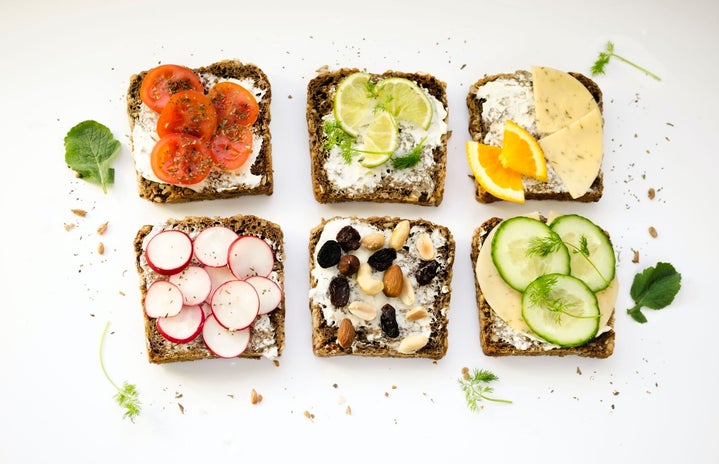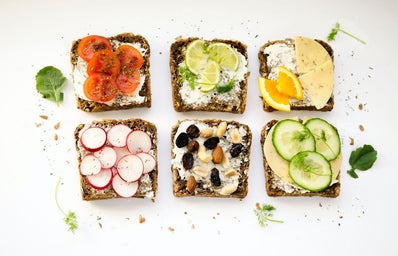Trigger warning: eating disorders
Balance is tough. Being thorough and being obsessive are different sides of the same coin, so how do we draw the line? As someone who used to always say she “wasn’t hungry” and counted her calories to a tee, but now is trying to track and optimize her macronutrients for an active lifestyle, the line is even thinner. I want to record my daily protein and fiber intake, but how do I do that without falling into the trap of micromanaging my sugar and carb intake? Calorie tracking can be a helpful fitness tool, and maybe there’s a way for it to be less of a slippery slope.
I don’t recall much from my ED months, a period of my life where I constantly felt lightheaded and anxious, but I do distinctly remember logging half a serving of raw, plain spinach leaves into MyFitnessPal as my lunch. Nowadays, when I’m bloated or think that I’ve eaten too much, that memory is a reminder that feeling full is better than feeling hungry.
Being in full-on recovery for an eating disorder was almost easier than what I’m trying to do now because the biggest, most important step for me was just to cut out the source of my obsessive habits and delete the trackers off of my phone. It was about rebuilding habits from the ground up, with no distractions. However, implementing calorie tracking into my life again meant gaining back some of those habits to keep me accountable, but not too much, or else I’d spiral — which is easier said than done.
What was important for me to realize was that I didn’t have to change everything about my diet all at once. Maybe I wanted to eat in a slight caloric deficit or increase my protein, but I didn’t need to overwhelm myself with changes and go back to scrutinizing every bite of food. Mindful eating is a hard skill to learn and it’s one that I’m still working on.
I also needed to realize that calorie tracking itself is not a bad thing, but rather how far I was taking it when my eating disorder was at its peak. We’re all already somewhat aware of the ratio of macronutrients we consume (protein, fats, carbohydrates), and all tracking would do is fine-tune that awareness a little. Reframing calorie tracking from the enemy to something that could help me achieve my goals was a necessary step to reintroducing it into my life but from a healthy perspective this time.
Eating disorder recovery is oftentimes a lifelong process, and that’s okay. What’s important to remember is that it is possible to rebuild a healthy relationship with food and use it not just to survive, but to improve and enjoy life. The goal of calorie tracking should never be to micromanage your diet or obsess over every nutrient subcategory, but to help yourself be healthy and nourished and I’m happy to finally be using it with that in mind.
If you or someone you know has an eating disorder and needs help, call the National Eating Disorders Association helpline at 1-800-931-2237, text 741741, or chat online with a Helpline volunteer here.





